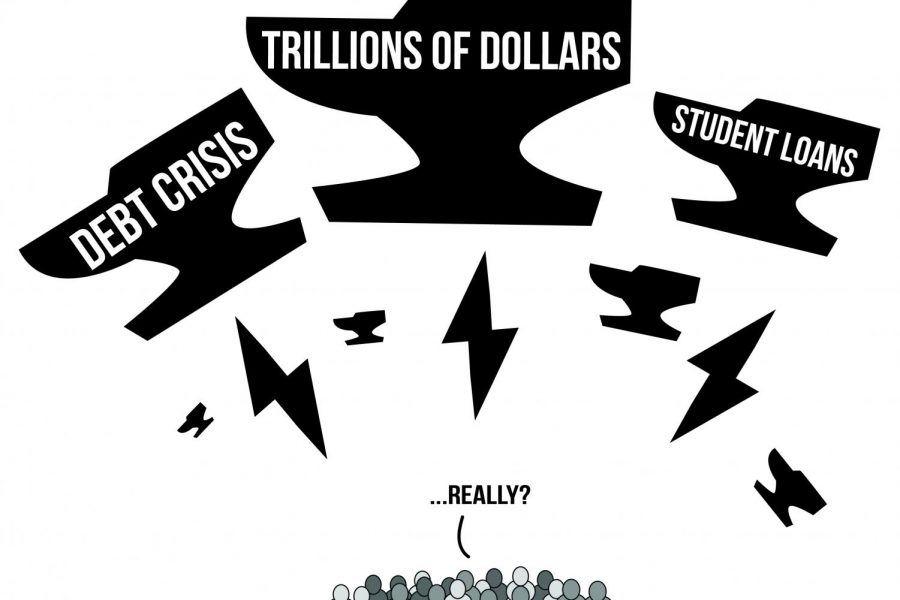Students Fear Potential Federal Education Cuts
Debt: a four-letter word that strikes fear in the hearts of students everywhere, like an ever-present cloud with little hope of escape. For many drowning in debt, there may be one fewer option to get help, with the possible end of the Student Loan Forgiveness Program.
There is a student debt crisis in this country, as Millenials have accumulated more student loan debt for longer periods of their life than any other generation before them. This has led to detrimental effects on the economy as they work to pay off their loans rather than to move forward in life by buying houses.
President Donald Trump made an announcement this past week that will potentially affect higher education students across the country—a cut to the Education Department. This cut would remove 5.6 billion dollars from the department.
This will result in the end of a Bush-era program that helped federal and non-profit workers by forgiving publicly-held debt.
President Trump and Education Secretary Betsy DeVos stated the reason cuts are taking place is to save money and lower taxes. Opposers of the cut say that it could affect the number of individuals who will go into federal or nonprofit work because those fields tend to have lower wages.
This cut is in stark opposition to proposed plans of liberal Democratic candidates, like Sen. Elizibeth Warren and Sen. Bernie Sanders, who have unveiled plans to forgive millions in publicly-held loan debt. If their plans went into effect, they would forgive up to $50,000 of federal student loan debt for households making less than $100,000 a year.
This is not the first time that President Trump has threatened to cut the Student Loan Forgiveness Program, with threats happening almost annually. The proposed plan will have to go through Congress before it is made official as the president does not have direct control over different departments’ funds.
Students like Gareth Fairchok, a third-year Political Science major, thinks that the cuts are just bluster to boost his voter base going into the upcoming presidential elections.
“He is just pandering to his base with these threats,” Fairchok said. “For the people that hate the liberal intellectuals, he is just trying to give them what they think is deserved. Besides the fact that they aren’t going to happen, this is just a show to get support.”
There are other issues on the line than just the loan forgiveness program though, such as the possible cut of funding for federal work-study and the Federal Supplemental Educational Opportunity Grants (FSEOG).
These massive cuts will have a greater impact on the lives of students, Jeff Scofield, the assistant vice president of Student Financial Services said.
“I think of more immediate concern is the Trump proposal to eliminate the FSEOG,” Scofield said. “SU students in need receive $1,380,000 in this program each year. Also, he has proposed a 58% cut to the Federal Work-Study program. At SU, this would be a loss of over $650,000 in work-study funding.”
If these cuts were to be implemented, the changes would be wide-reaching and affect a huge portion of the student body.
Kaitlyn Mahosky-Adams, a second-year psychology major, was distressed to hear about the possibility of cuts to these programs.
“It’s really scary to think that all these things that I rely on could just disappear,” Mahosky-Adams said. “[The debt] really weighs on me everyday. I needed the money that I was getting from the government and it was nice knowing that I had options to take care of it in the future if I wanted to go into social work.”
While it remains to be seen if the cuts will be implemented, the fact that they could happen at any time is concerning to current students.
Fairchok pointed out where he views the problem surrounding the cuts stem from and how this implements the communities affected.
“I think that inequality is the real problem here, not just the possible cuts,” Fairchok said. “The fact that so many people rely on these programs and if the government takes these programs away, they have no other option—that’s what I am more worried about.”











